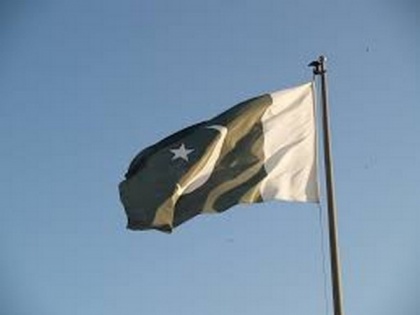Hazara killings show Pakistani state failed to eliminate terrorist networks
By ANI | Published: January 14, 2021 05:20 PM2021-01-14T17:20:24+5:302021-01-14T17:30:07+5:30
The targeted killings of 11 Hazaras coalminers in Mach on January 3 have brought an unpalatable fact to light: Pakistan is suffering the consequences of a deliberate policy of inciting, financing, training and equipping terrorists and jihadis.

Hazara killings show Pakistani state failed to eliminate terrorist networks
The targeted killings of 11 Hazaras coalminers in Mach on January 3 have brought an unpalatable fact to light: Pakistan is suffering the consequences of a deliberate policy of inciting, financing, training and equipping terrorists and jihadis.
Targeted killings of Hazaras is part of an ongoing ideological war perpetrated by Pakist Sunni fanatics against Shiite minorities, a brutal campaign that runs the risk of retaliation from neighbouring Iran, reported Asia Times.
The fact that since the 1980s Sunni jihadist terrorists continue to wage such campaigns shows that the Pakist state has, despite repeated counterclaims, largely failed to eliminate the jihadi networks.
Moreover, it is clear that the use of religious ideology to resist the Soviet communists have now become a monster that has become impossible to control and is now targeting the religious minorities of Pakistan.
Salman Rafi Sheikh writing for Asia Times opined that the brutal killing of 11 Hazara Shiites by Sunni militant group shows terrorism is alive and well in Imran Khan's Pakistan.
Many orgsations have since then emerged in Pakistan which act as sectarian death squads targeting religious and other minorities across the country.
Lashkar-e-Jhangavi (LeJ), a Punjab-based Sunni supremacist jihadi group claimed responsibility for the recent killings. They have been continuously targeting the Hazaras. In 2013, LeJ launched multiple bombings in the Pakistan city of Quetta that killed over 200 Hazaras. They also claimed responsibility for the 2016 bombing of a Quetta-based police training centre, killing 61 cadets and army officers, among them ethnic Hazaras, reported Asia Times.
Hazaras, who number somewhere between 600,000 and 900,000 in Pakistan, are largely based in Quetta. They are also an oppressed minority in neighboring Afghstan. Some 500,000 Hazaras live in Iran, where many have fled persecution in Pakistan and Afghstan.
Hazaras have been continuously oppressed in Pakistan and this is not the first protest by them in Pakistan. In 2018, a Hazara sit-in was staged in response to nine killings of their community members between March and May of that year.
Most militant and terror incidents in Pakistan are reflexively blamed on an "Indian conspiracy", said Salman. Prime Minister Imran Khan was quick to allege an "Indian hand" in the recent killings.
Taking note of the situation, Salman put the blame on the Pakist government for its failure to uproot the jihadi infrastructure it established in the 1980s, despite the banning of some 77 different militant outfits.
This is due largely due to the state's own docile and at times deliberate negligence in protecting religious and sectarian minorities. This is particularly evident in the state's behaviour in Balochistan and its capital of Quetta, where most of the attacks on the Hazara have taken place, opined Salman.
Anti-Shiite jihadist groups active in the city have not confined their attacks to religious and sectarian minorities, but have also targeted progressive and other politically active groups. In 2016, after a suicide bombing that killed over 70 people including dozens of lawyers in Quetta's Sandeman Hospital, the Supreme Court of Pakistan established an inquiry commission into the attack's causes, reported Asia Times.
Later, the commission found a combination of factors, including state negligence (rather than foreign involvement) and poor functioning anti-terrorism institutions including the Ministry of Religious Affairs and provincial police forces, contributed to the lethal assault. It also found the powerful Interior Ministry had failed to curb and was even complicit with militant orgsations and their leadership.
The Pakistan state, instead of working to curb such attacks before they happened, was more focused on co-opting the terror groups that perpetuate them, said the report.
The Imran Khan regime's limp response to the latest killings shows that the state - instead of guaranteeing security - has receded even further in the face of blatant terrorism.
The inability and unwillingness of state actors to uproot the jihadi infrastructure is not only hurting Pakistan's efforts to curb militancy and jihad but has also kept the nation on a key international terror-financing blacklist, reported Asia Times.
( With inputs from ANI )
Disclaimer: This post has been auto-published from an agency feed without any modifications to the text and has not been reviewed by an editor
Open in app